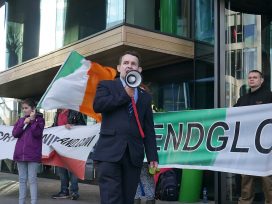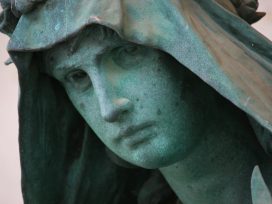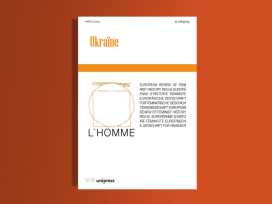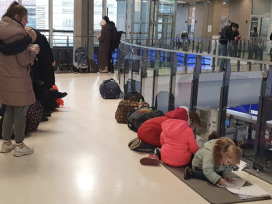In Soundings, Nira Yuval-Davis discusses how the bases of social trust have been eroded during the neoliberal era, which has also been a time of increased migration. This coincidence has brought to an end ‘the technology of multiculturalism, which, since the Second World War, has been the major technology for the control of diverse populations’. An authoritarian fixation with border control has taken its place – a top-down response that has been reinforced by a bottom-up politics of belonging and exclusion:
The people who follow this politics continually argue that they are ‘not racist’ – although they are very much against all those who “do not belong”. The extremist English Defence League, for example, has formal Jewish and Gay sections, as well as Hindu, Sikh and Afro-Caribbean supporters, which would be unimaginable in the older kinds of extreme right organisations with their neo-Nazi ideologies.
Referring to Achille Mbembe’s theory of necropolitics, Yuval Davis considers the new forms of racialisation in the context of a capitalism that is completely indifferent to the fate of those who stand in the way of accumulation. The ‘others’ are not seen as an enemy: they are simply disregarded, as people with no names, identities, visibility or rights, including the right to life: ‘racialisation – in its many forms – has been the underlying distributive principle not only of resources but also of the right to life and grievable deaths’.
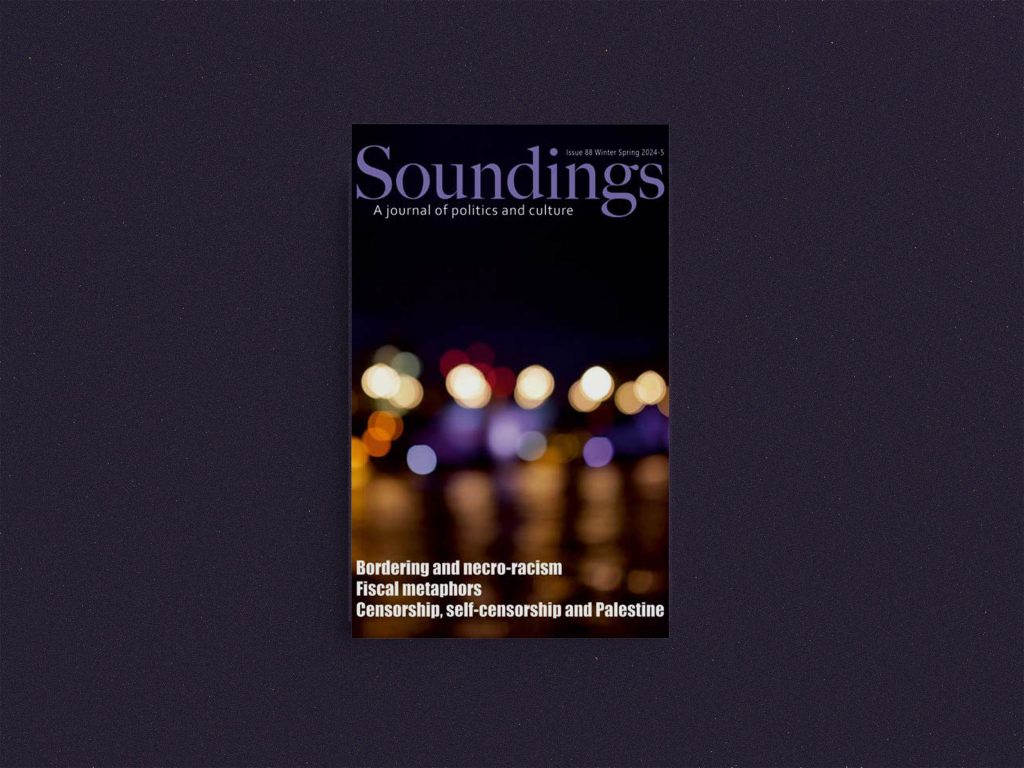
As Yuval-Davis concludes, ‘to fight against these kinds of necro racism we need to enact a politics of care’.
Statues of empire
Instead of focusing on why campaigners want to remove the statues of slavers, invaders and colonisers that still litter so many of our public places, as so many conservatives have done, we should be asking who campaigned to put them up in the first place, and why, writes Milly Williamson.
The ‘statue mania’ of the late nineteenth and early twentieth centuries – the high point of European imperial expansion – served to legitimate emerging forms of nation and empire, as modern states sought to consolidate the power of their new elites by appropriating and transforming older modes of belonging. Most of the statues were erected long after the deaths of the people they commemorate. Eric Hobsbawm described this process as the ‘invention of tradition’.
The statue of the 17th-century merchant Edward Colston is a case in point. It was erected by the Bristol Corporation in 1895, nearly two hundred years after his death, following a campaign by members of the local elite involved with the Society of Merchant Venturers. Both Colston and the SMV had derived the bulk of their wealth from the slave trade, and the aim now was ‘to move away from, and hide, their previous pro-slavery stance’.
As part of this process they actively reconstructed Colston as a ‘moral saint’ and benevolent philanthropist, and in their campaign for Colston and against other candidates – including a number of Bristolian abolitionists – they concealed Colston’s enrichment through slavery and their own previous anti-abolitionist stance. Philanthropy, then as now, was mobilised as a means to whitewash history rather than illuminate it.
In summer 2020, the statue was toppled and thrown into Bristol Harbour. As Williamson recounts:
Rather than engaging with the concerns of campaigners and affected communities, central government’s response was to double-down on an unreconstructed version of history which refuses to face up to the violence of empire, or acknowledge the pain inflicted on the ancestors of British citizens today, and to use legislation to close down avenues of legitimate campaigning.
This would seem to indicate that the power represented by statues of empire is not merely an historical relic to be tolerated as an anachronism: it is part of an ongoing structure of power that remains invested in inequality.
The privilege of anxiety
Anna-Esther Younes, a Palestinian–German scholar who for more than a decade has experienced job losses and media misinformation campaigns, talks to organisers Salma Shaka and Mars Zaslavsky about the mechanisms of anti-Palestinian repression in Germany and Europe.
The one thing we’re not allowed to talk about is the actual production and maintenance of the workings of colonial capitalism and the wars it brings with it,’ says Younes. This denial has involved the narrowing down of definitions of European fascism and Nazism in a way that ‘conveniently absolves Europe and Europeans of the responsibility to reckon with the fact that its annihilatory roots were laid in western philosophical, political and economic thought and practice’.
Punitive action by states across Europe makes it increasingly difficult to organise in solidarity with Palestine, and this, in combination with the isolating nature of the current political climate, has a debilitating effect on activists. This is reflected in disputes within solidarity movements, and it also feeds into intergenerational conflicts:
On the one hand, we are battling a structure that doesn’t give us the space to have these interpersonal, intergenerational and transnational conversations, and then we are trapped as the people who were born within the system, with our own often unconscious neoliberal agendas. It’s not easy to organise amidst all that while having conversations with the ‘old guard’.
